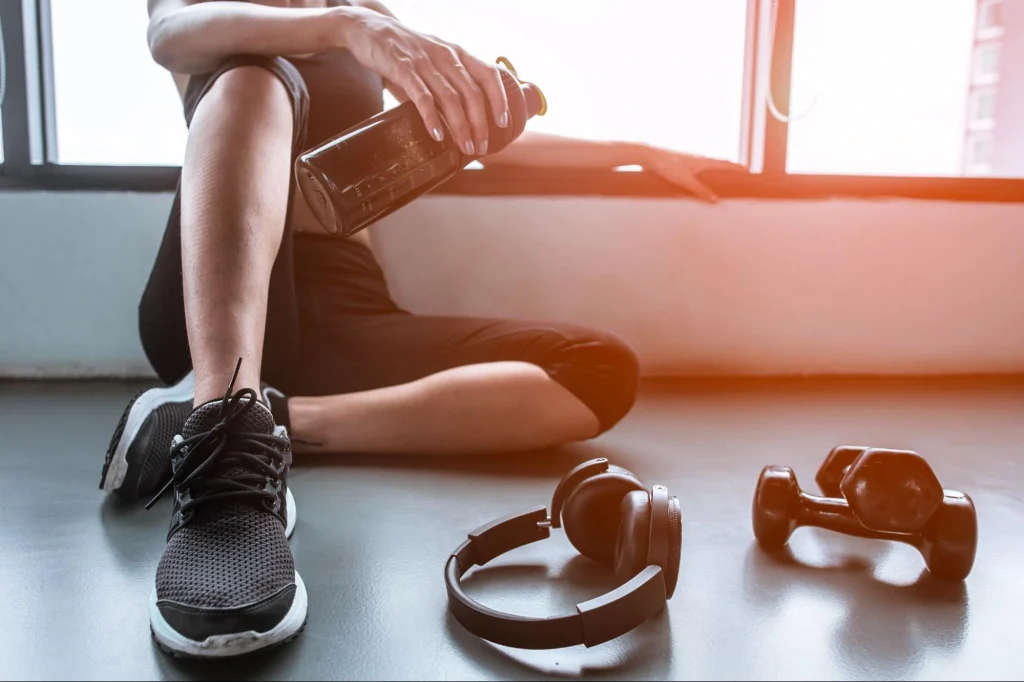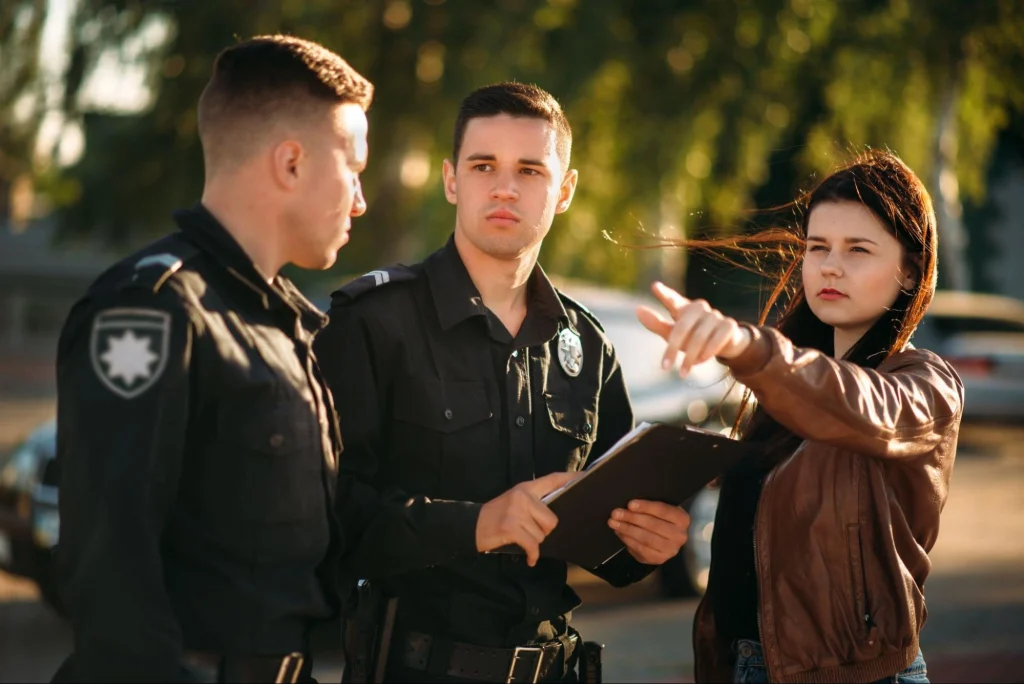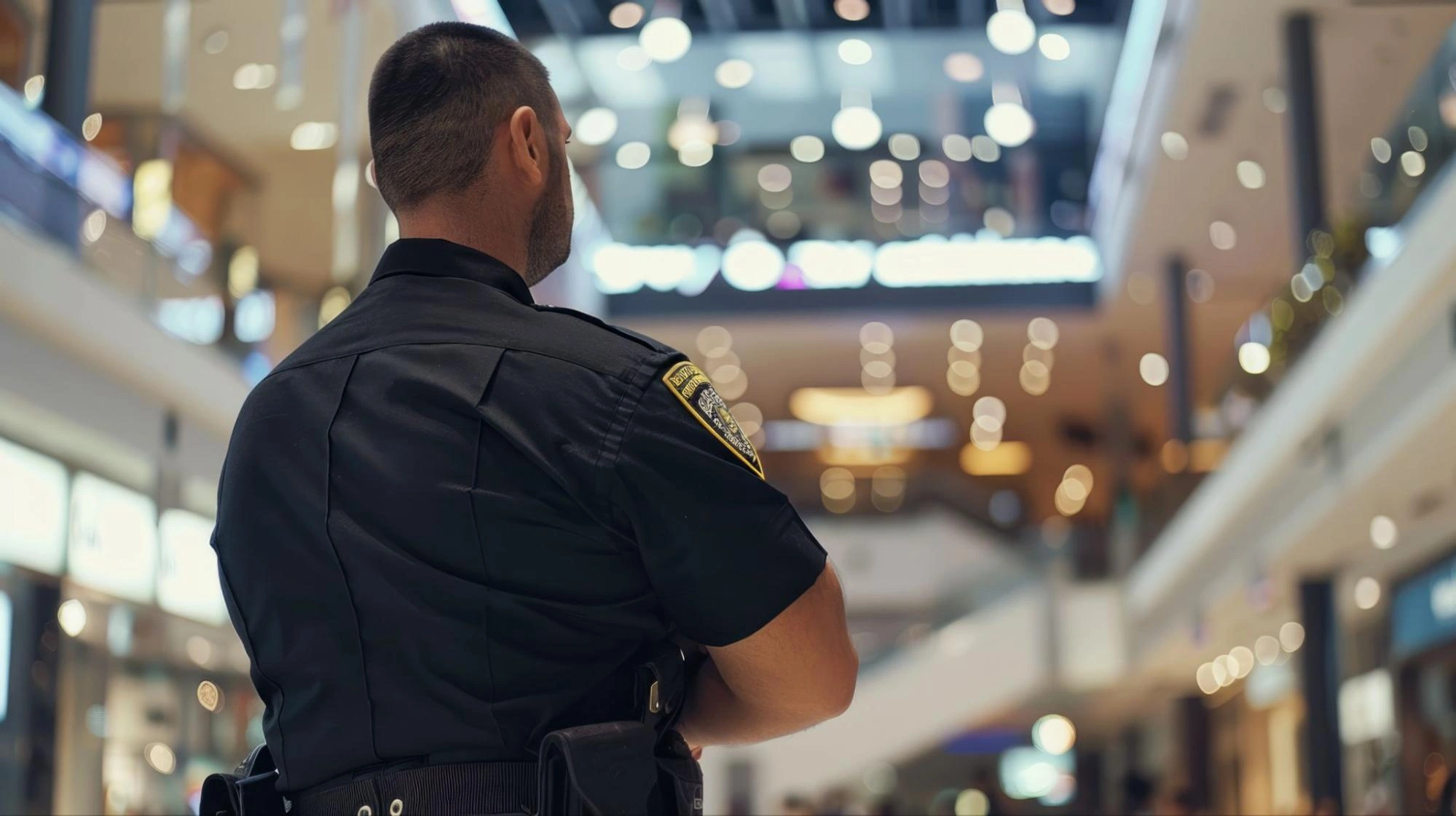Don’t coast through your role as a security guard.
Instead, aim to improve your skills and knowledge to become a confident and reliable professional who always performs your responsibilities with top-tier decision-making, integrity, and focus.
Through our top security guard tips for both new and experienced personnel, we’ll help you expertly observe your surroundings, de-escalate situations, and protect individuals when on duty.
1. Learn How to Stay Calm
In any job, staying calm is important, but in a security role, it’s a must.
Becoming flustered, angry, or panicked can hinder your decision-making, causing you to escalate a situation unintentionally. Staying level-headed in all situations, including confrontations, evacuations, and emergencies, is a skill you should hone and develop.
Managing Adrenaline
Being mindful of adrenaline and understanding how it affects you is a key step towards remaining calm.
Adrenaline makes our heart beat faster and increases the efficiency of our lungs, which causes our brain to be more alert and gives us more energy.
When a high-stress situation arises, we can feel overwhelmed by this adrenaline rush, which might cause us to panic. In these situations, remind yourself that adrenaline is there to help us respond to threats more effectively.
You can manage adrenaline by engaging in deep breathing exercises or limiting caffeine beforehand, helping you stay focused and grounded.
Overcoming Stress
Stress can lead to poor decision-making and cloud our judgments, which can be detrimental when on duty as a security guard. Even if you enjoy your job and are confident in your abilities, stressors from your personal life may affect your performance and how you interact with clients, colleagues, and public members.
Overcoming stress is a lengthy, ongoing process, and there’s no quick fix. However, engaging in the following practices can help you reduce and manage stress over time:
- Write down your thoughts and feelings in a journal to express frustrations or anxieties;
- Find a creative outlet in your free time to lower your stress hormones;
- Eat a balanced diet and reduce ultra-processed foods;
- Reduce your caffeine intake;
- Spend more time outdoors when not on duty.
2. Keep Reviewing Training Materials
Depending on your state, to become a security guard and obtain your license, you’ll need to complete a set amount of online or in-classroom training.
However, even after you become a licensed guard and land a job, you should still complete additional training whenever possible.
Online training courses give you updated knowledge and advice to help you improve how you perform your duties, among other benefits.
For instance, our Officer Safety training module highlights triggers that can cause individuals to act out, key actions for handling violent situations, top hygiene practices for contaminated materials, and more.
Other modules that will help you become a more capable security guard include:
- Preserving the Incident Scene: Helps you secure incident areas and maintain the integrity of any evidence.
- Radio Procedures: Demonstrates how to use two-way radios per the Federal Communications Commission’s (FCC) regulations.
- Arrest, Search, and Seizure: Outlines important considerations for determining if an arrest is authorized and highlights important US laws that indicate situations or scenarios where an arrest, search, or seizure is lawful.
3. Engage in Regular Fitness Training
Staying fit will help prevent injuries and prepare you for physical challenges during shifts.
With long patrols or standing, you need to build endurance, strength, and flexibility. You’ll also appear more capable to others, as out-of-shape guards may give the impression that they are not prepared to perform some duties, such as physically restraining a suspect.
Strength, cardio, and flexibility exercises can be incorporated into your daily routine by going to a gym or completing home workouts.
Here are some basic exercises we recommend:
- Strength: Squats, deadlifts, push-ups, and planks help with core strength and increase muscle mass.
- Cardio: Running, cycling, or brisk walking improves endurance and controls weight.
- Flexibility: Stretching before workouts or completing yoga helps to maintain mobility and prevent soreness or injuries.
Physical activity also has plenty of other advantages for both your personal life and your role as a security guard, such as boosting your energy, improving your mood, and helping you sleep better.

4. Limit Distractions When Posted
During longer shifts, it may be easy to become distracted and lose focus on your surroundings, leading to the compromised safety of your environment.
If you’re bored and engaging in long conversations with colleagues, using personal devices such as your phone, or daydreaming, you’re becoming distracted from your duties, and you can miss security threats.
Stay focused and limit distractions by avoiding non-essential conversations, switching off the notifications on your personal devices, keeping your workstation clean and tidy, and being actively engaged by regularly scanning your environment to assess potential risks.
5. Know Your Limitations
As a security guard, you may be driven to do everything you can to protect individuals and secure the area you’ve been posted in. However, the most experienced security guards will know their limitations and can admit when they should call for backup or emergency responders rather than attempt to handle the situation alone.
For instance, if you’re confronted with a violent altercation, you should assess whether you have the ability and authority to manage the situation or if law enforcement should be called in.
If the individual is highly aggressive or possesses a weapon and you lack the necessary training or resources to maintain control, you should immediately contact law enforcement.
Guard Training Tip: Remember, being overly confident can lead to poor judgment, which can further jeopardize the safety of others during a dangerous or unpredictable scenario.
Your primary responsibility as a security guard is to observe and report, not to be a hero.
When facing a situation that could cause a clear threat to public safety, do not attempt to handle it alone.
Instead, secure a safe distance, alert authorities, and follow protocol for notifying police or medical personnel.
Your safety and the safety of others should come first, and you must always consider whether getting backup or calling in emergency responders is the most effective way to manage a dangerous situation.

6. Own up to Your Mistakes
Whether you’ve been a security guard for a few weeks or several years, there will be times when you make an honest mistake. You may miss a detail in your observations, mishandle a situation, or fail to follow a certain protocol.
When these mistakes happen, it’s important to acknowledge them rather than cover them up.
Talk to your supervisor honestly and explain what happened, what went wrong, and what steps you’ll take to avoid repeating the same mistake. This shows you’re prepared to learn from the mistake and improve, which also demonstrates accountability and professionalism.
If you continue to make the same mistake, you might need to take additional steps. For instance, if you forget important details when completing your Daily Activity Report (DAR) or incident reports, you may need to complete some extra training in Observation and Documentation.
You can also seek help from your supervisor or colleagues and see what they do to avoid making a specific mistake, as there may be strategies or methods they use that could help you improve.
As long as you own up to your mistakes rather than ignore them, you can help prevent them from happening again and allow yourself to become a more proficient and effective security guard.
Final Thoughts
With these security guard tips, you’re on your way to improving how you interact with individuals, complete duties, and assess various situations.
Interested in becoming an even better security guard? Check out our guide on vital security guard skills and how to develop them.
If you want to become more well-rounded, confident, and knowledgeable, look at our full list of guard training courses and begin working through them today.
“Don’t watch the clock; do what it does. Keep going.” – Sam Levenson


